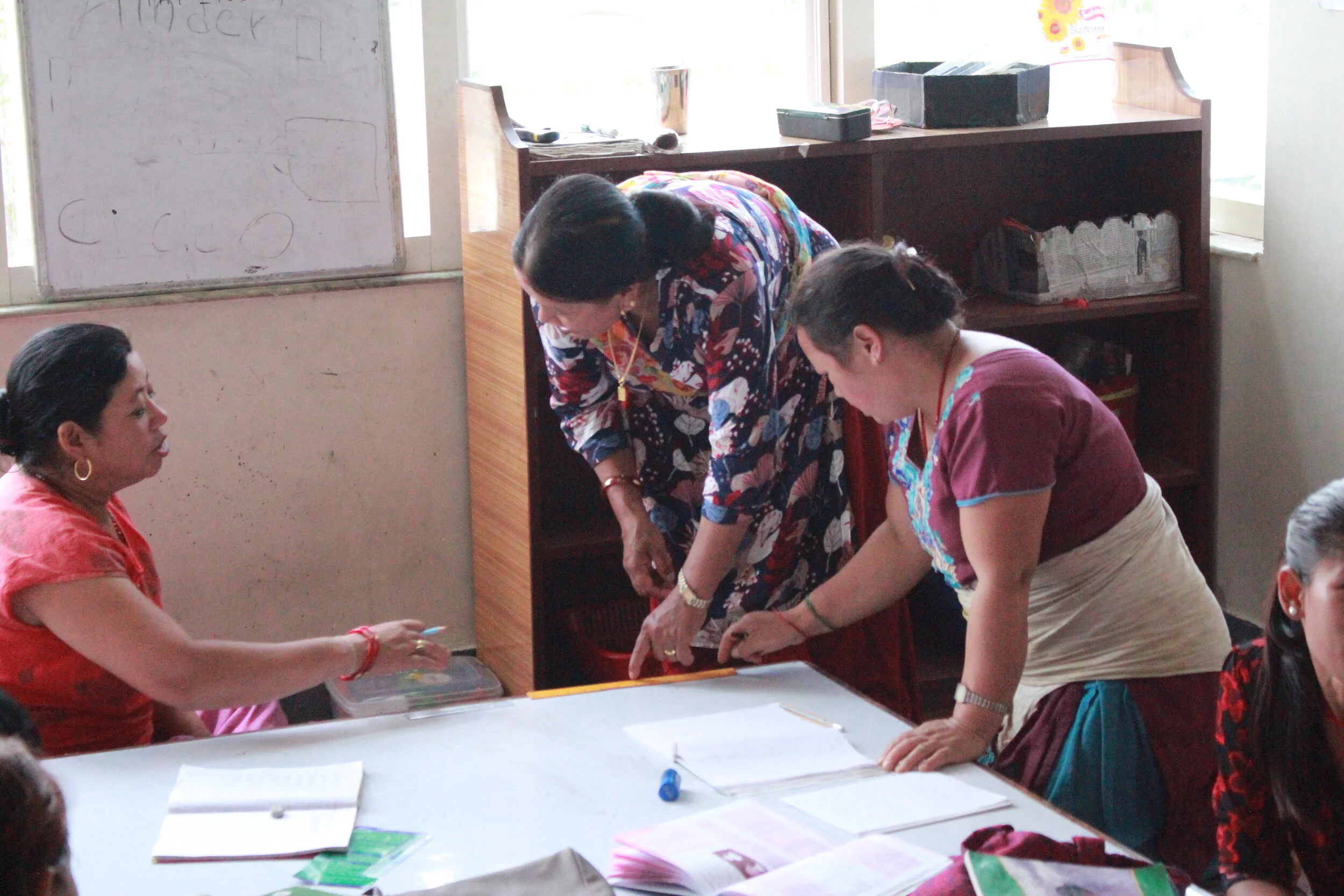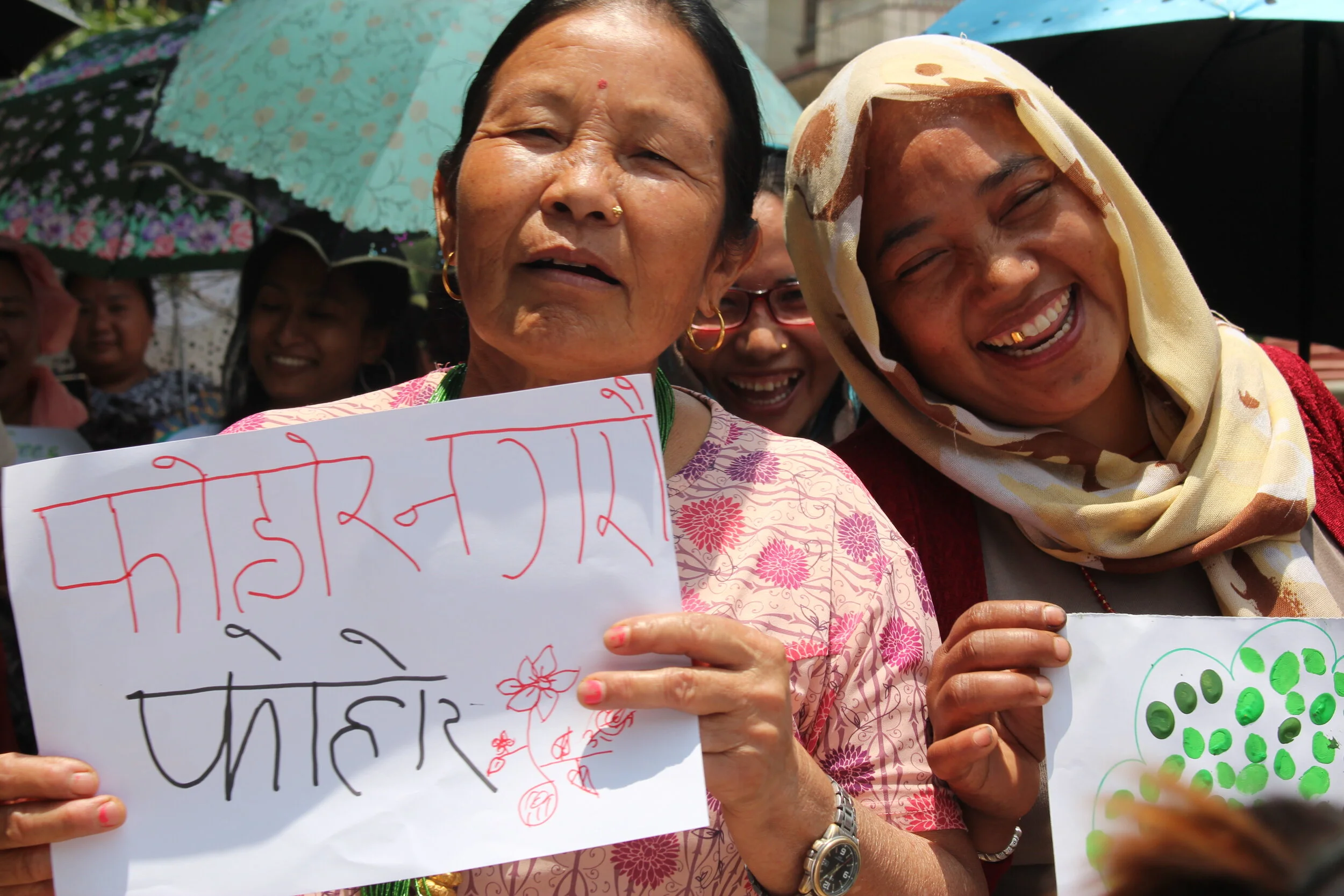
Women’s Literacy program
By nearly every measure, the status of women in Nepal is lacking: 55% are illiterate and nearly 60% live on less than $2/day.
The SuMa Women's Literacy Program aims to change that.
The Women’s Literacy Program empowers women living in extreme poverty through education. Through a program of literacy, numeracy, and life-skills that are taught through immersive, real-world situations, students gain the knowledge and skills they need to make their voices heard, exercise control over their lives, and improve their family outcomes and those of their community.
Most women living in our communities do not have access to preventative health care. As part of our holistic approach to care, every student receives twice annual medical checkups, including well-women exams and cancer screenings.
Read on to learn more about the work we are doing with Literacy & Numeracy, Life-Skills, and Physical Health.

Students partake in daily lessons in English & Nepali conversation and writing as well as Mathematics, which are taught through applicable, real-world lessons. These skills help women to manage daily tasks like shopping and paying bills, as well as enable them to participate more fully in the social and political life of their communities.
Further, we know that educated women, who are also mothers, are more likely to ensure their children are educated as well—creating a generational impact.
Nepal and English Literacy (verbal and written)
Numeracy
To build tangible and immediate skills that will directly impact the lives of our students and other women in the community, we offer workshops that fall into one of two categories:
1) Small Business & Entrepreneurial Skills
Topics include opening and operating a small business, marketing a business, accounting, and taxes.
2) Health & Well-Being Education
Topics include personal and family health matters (including women’s health, mental health, domestic abuse, early childhood development, healthy parenting skills).
Without support, most of our Women’s Literacy students are unable to access primary or gynecological care. Access to medical care is critically important.
As such, our students are provided bi-annual medical care appointments, including gynecological exams, cancer screenings, and health education.
To read our most recent student stories and moments of impact, read our Annual Report.
“I had no idea that there existed a concept of online classes before being a part of it. As someone who did not even know how to use a phone, learning to make video calls and dialing the number myself is indeed a big deal. I never knew there were so many functions that I could learn. Often I talk about my ongoing online classes with my friends which makes me super happy and proud.”
- Shiva, Women’s Literacy Student, Sanogaun
“I have come across a long way since I joined the program. My journey from an introvert to an outspoken woman has been a pure bliss. I have overcome my limitations of learning; from Nepali to English that I could barely think of and now the Virtual classes. I rejoice how I can use messenger and capture my words in a video these days.”
- Akriti, Women’s Literacy Student, Jorpati
“I can now understand what people say in English and respond back to many questions. The additional Virtual class has been a boon to me. I can now video chat, use both languages for texting, and can use various digital features without help from my daughter. In fact, I invest more time in learning.”
- Babita, Women’s Literacy Student, Sanogaun













